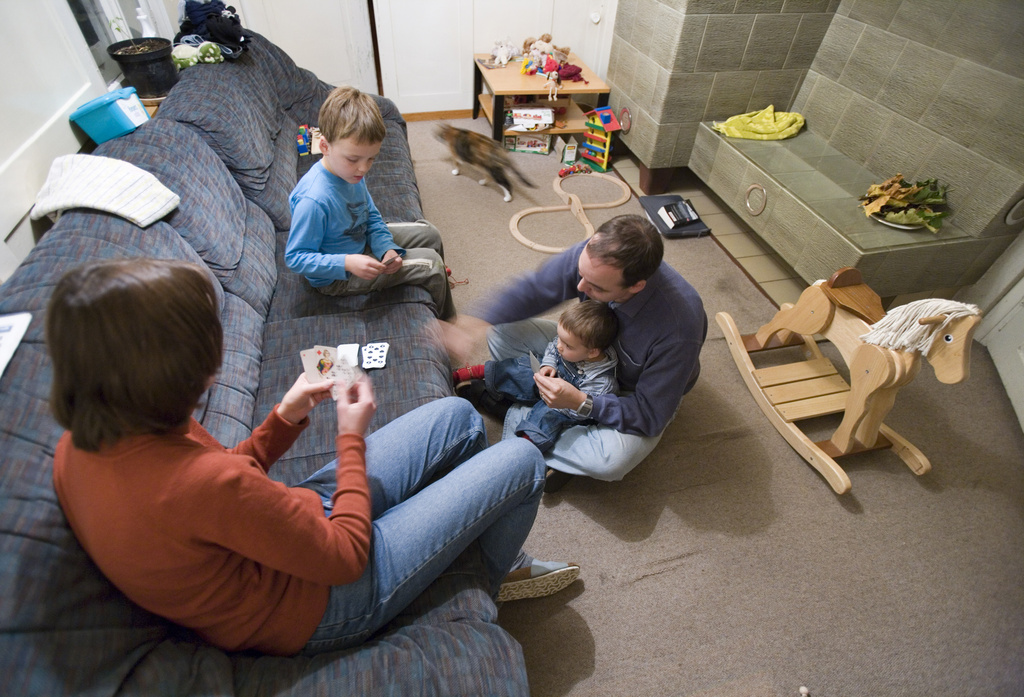Health premium woes leave patients in lurch

Large numbers of people in Switzerland are unable to pay their health insurance premiums and at risk of being cut off from care.
According to the Santésuisse health insurance association, 150,000 people have already been suspended due to non-payment of premiums and are only eligible for emergency treatment.
Some 400,000 are additionally facing claims by their insurance companies and risk losing their insurance coverage.
A patient with suspected cancer cannot be admitted to hospital for tests; an operation to open a narrowed blood vessel is added to the waiting list and an elderly diabetic can no longer receive her insulin at the pharmacy.
Erika Ziltener, president of the Swiss patients’ umbrella organisation, lists these examples of the consequences of health insurers withdrawing coverage. Where illnesses are not acute or life-threatening, treatment is delayed.
“For patients this is often an enormous psychological strain and cause of suffering,” said Ziltener. “In these cases there can be unpredictable long-term effects.”
Unpaid bills
Outstanding health bills last year reached a record SFr762 million ($722 million), according to Santésuisse.
This figure is up from SFr718 million in the previous year.
Experts offer varying explanations for why people are not paying their health premiums resulting in their exclusion from the system.
“We assume this is due to the economic crisis,“ said Santéssuisse spokeswoman Silvia Schütz, who believes most of those who don’t pay are people with little money.
In fact, ever more Swiss are receiving state subsidies to meet their premium costs.
Health insurers and cantons, funding many of the public hospitals, have been fighting over compensation payments.
While being uninsured is potentially devasting for individuals, for the health care system, uninsured who use emergency care only can represent a savings.
Ziltener, says that rising premiums are a factor. “Everyone is paying more – including those who are receiving subsidies.“
Too complicated
A bewildering array of laws, which vary from canton to canton, also make the system extremely difficult to navigate, she says.
According to Ziltener, often people who would be entitled to subsidies, or whose financial situation has changed drastically, or who move to another canton, simply fall through the net.
“Countless people are overwhelmed by the complexities of the system.”
Michael Jordi, general secretary of the Swiss Health Directors Conference, believes blame for the increasing numbers of uninsured is mostly due to the flawed system.
“Laws which were created to counter abuse have had unintended consequences,“ said Jordi.
“Not only those who do not want to pay, but also those who cannot pay, are getting caught up in the machinery of the law.“
Moreover, he noted, subsidies have not kept pace with mounting premiums.
Two-tier system
Ziltener fears this development could give rise to a two-tier health system. She calls on those who can’t pay to clarify as quickly as possible whether they have the right to support.
She also calls on the insurers “to take their responsibilities seriously”. She says they are often very slow to restore healthcare provision to those who have had their service cut.
For her part, Schütz of Santésuisse pins blame on the communes and cantons, saying they only assume patients’ unpaid bills when expensive treatment is required.
Demands for payments and collection of claims are an enormous administrative burden, and hospitals too feel the effect of unpaid premiums. Unpaid hospital bills total some SFr80 million.
Legal revision
No relief is in sight until 2012 at the earliest, when a revision in the law comes into effect that will transfer responsibility for suspending health coverage from the insurance companies to the cantons.
Jordi says the revision will also prohibit health insurers from withholding treatment during the course of legal proceedings to stop coverage.
Ziltener says another welcome change is that state subsidies would be sent directly to the health insurers, instead of individuals.
“This will avoid people in precarious financial situations using their health insurance subsidies to pay their rent or other bills.”
Under the revised system, only those who cannot pay premiums will be left without insurance, said Jordi, a group, he said, that the government would at any rate step in to help.
Corinne Buchser, swissinfo.ch (Adapted from German by Kathleen Peters)
In October a new people’s initiative for a single national health insurer will be launched. It is supported by the Social Democratic Party, the Consumer Protection Association, the Swiss Association of Professional Organisations in Heath Care, and patients’ organisations.
In contrast to the people’s initiative for a single health insurer of 2007, this initiative will not demand that premiums be based on income.
In 2007 Swiss voted 71%against a unified health insurance.
(Adapted from German by Kathleen Peters)

In compliance with the JTI standards
More: SWI swissinfo.ch certified by the Journalism Trust Initiative














You can find an overview of ongoing debates with our journalists here . Please join us!
If you want to start a conversation about a topic raised in this article or want to report factual errors, email us at english@swissinfo.ch.